Experiential Learning Theory: Carl Rogers Presentation
advertisement
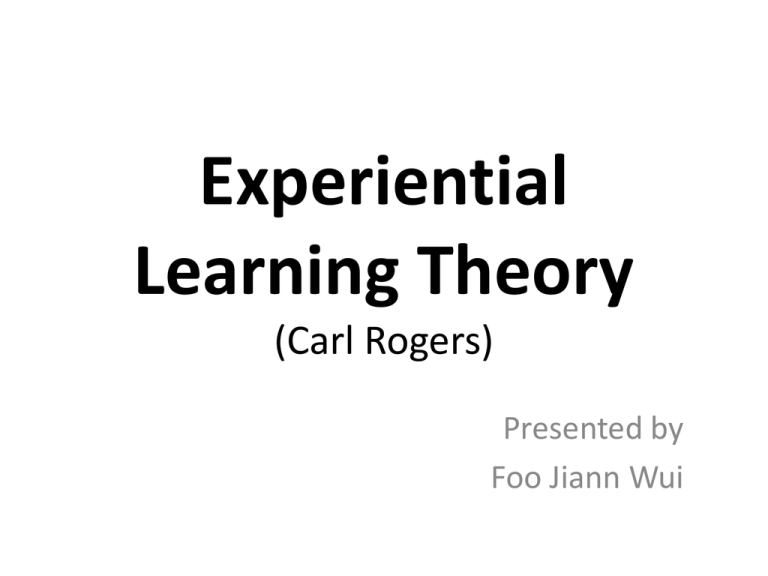
Experiential Learning Theory (Carl Rogers) Presented by Foo Jiann Wui Confucius (450 BCE) Tell me, I will forget. Show me, I may remember. Involve me, and I will understand. Carl Rogers Experience is, for me, the highest authority. The touchstone of validity is my own experience. No other person’s ideas, and none of my own ideas, are as authoritative as my experience. It is to experience that I must return again and again, to discover a closer approximation to truth as it is in the process of becoming in me. Rogers recognized 2 types learning styles Cognitive Experiential Memorizing facts Doing and experiencing The Way People Start Learning • Human beings have a natural potentiality to learn • Significant learning occurs when the learner perceives the relevance of the subject matter • Learning is facilitated when the learner participates responsibly in the learning process • Self-initiated learning is acquired by doing Principles of Experiential Learning • Independence, creativity and self-reliance are all facilitated • Self-criticism and self-evaluation are basic • Retaining and openness to experience • "Learning during the process of learning" Experiential Learning Cycle Plan Review Do Experiential Learning Cycle Plan - Set a goal - Decide the activities to achieve the goal - Decide expected learning outcomes Do - Engaging Activities - Self-directed learning Experiential Learning Cycle Review - Check the effectiveness - Compare the actual outcomes with the expected outcomes Experiential Learning Cycle What do you want to learn? How do you going to learn? Plan Why are these happened? How come? Review No questions! Just do it! Do Implementation - Can be a highly effective educational method - Learner should involve in the whole learning wheel - A fun learning environment helps the learner to retain the lessons for a longer period - May apply on teaching, experimenting and even gaming New skills • Team management • Communication skill • Leadership New way of thinking New attitudes References 1. Jarvis, P. (2006). Towards A Comprehensive Theory of Human Learning. New York, New York: Routledge. 2. Kirschenbaum, H. (2004). Carl Rogers's Life and Work: An Assessment on the 100th Anniversary of His Birth. Journal of Counseling & Development. 3. Neil, J. (2004). Experiential Learning cycle - Overview of 9 Experiential Learning Cycle models. From http://www.wilderdom.com/experiential/elc/Experiential LearningCycle.htm
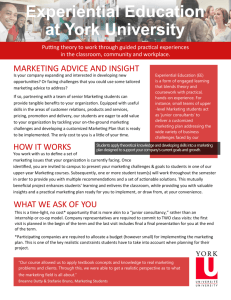

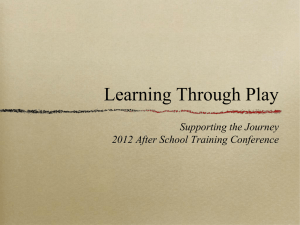
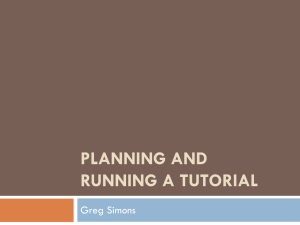
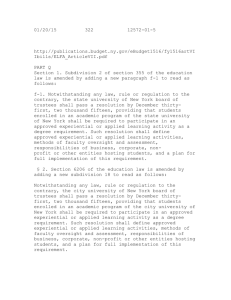
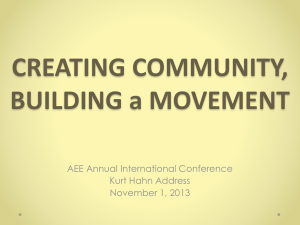
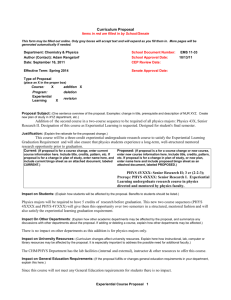
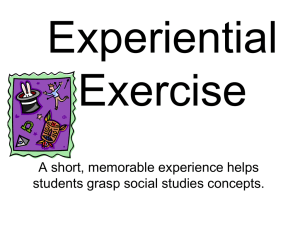
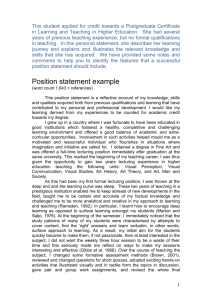
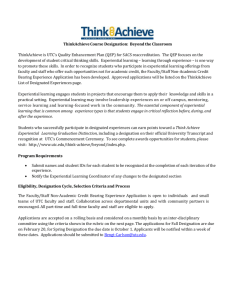
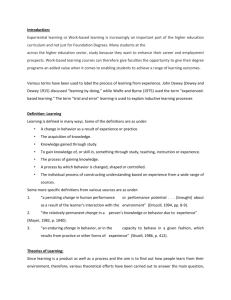
![Instructional Associate [Final]](http://s3.studylib.net/store/data/006897576_1-0ecfbb673adfc4658bcaaf0bb25dc8dd-300x300.png)